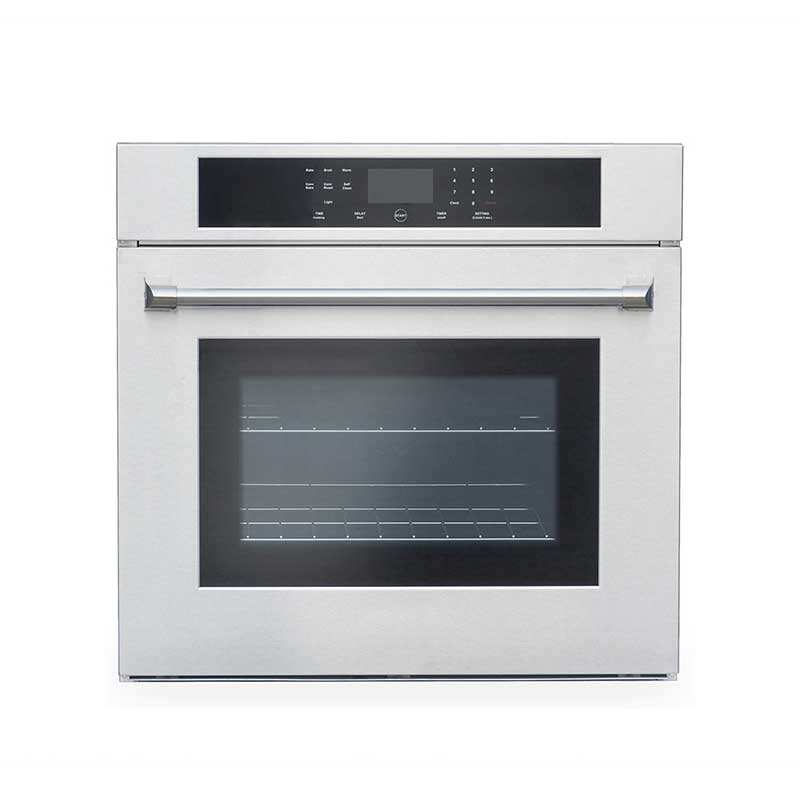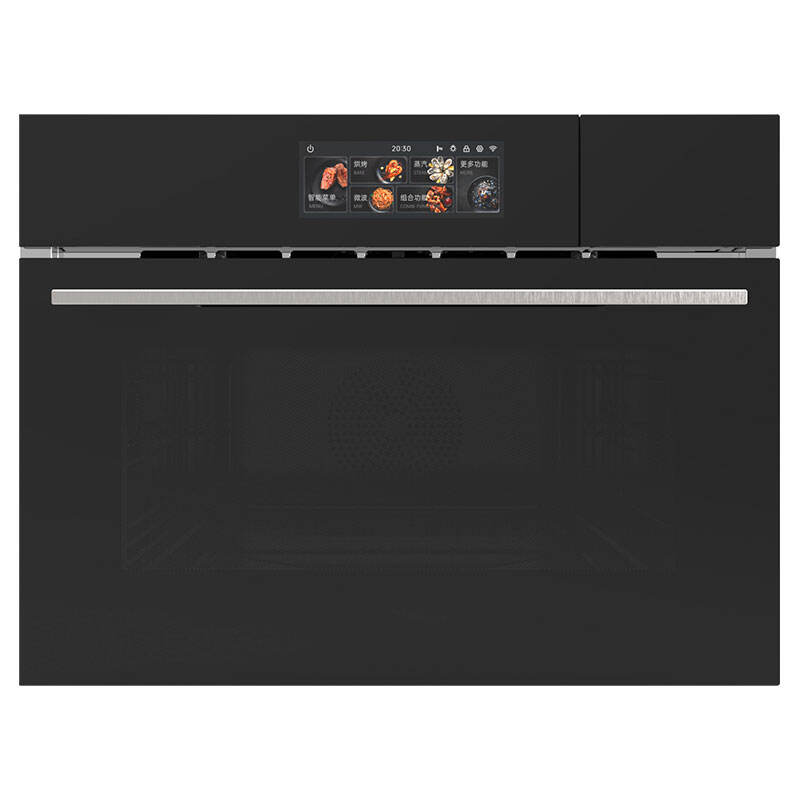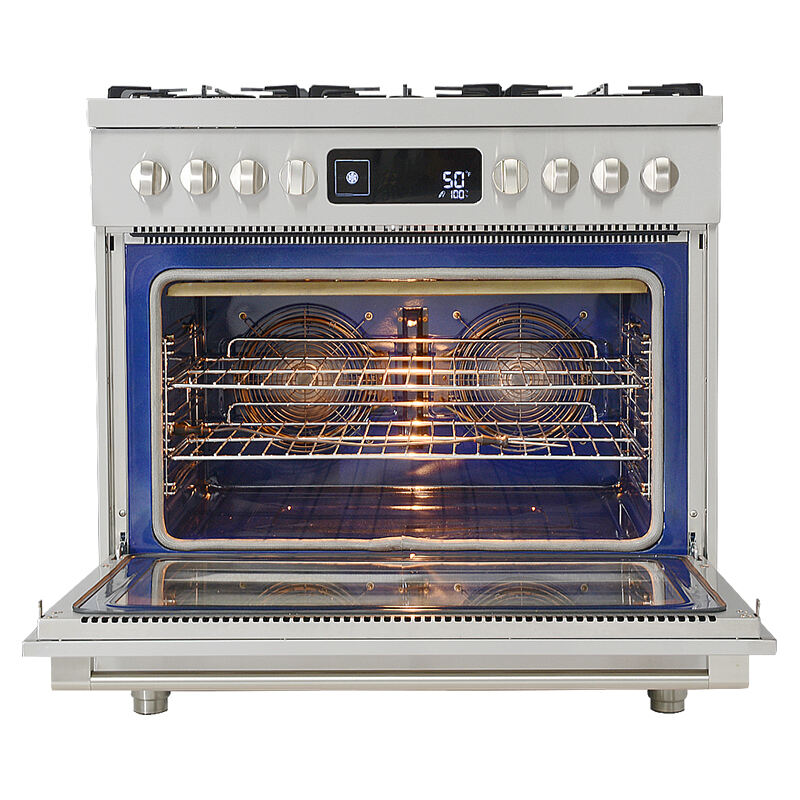Energy-Saving Technologies in Modern Ovens for Industrial Use
Core Energy-Saving Technologies in Industrial Ovens
Advanced Insulation Materials for Heat Retention
The incorporation of advanced insulation materials in industrial ovens plays a crucial role in maximizing heat retention. Various types of insulation materials, such as ceramic fiber, mineral wool, and aerogel, are commonly used in these ovens. Each of these materials offers unique benefits:
- Ceramic Fiber: Known for its low density and excellent thermal resistance, ceramic fiber is adept at reflecting heat back into the oven, thereby minimizing heat loss.
- Mineral Wool: Made from natural or synthetic minerals, mineral wool provides effective thermal insulation and is often used in high-temperature settings because of its fire resistance.
- Aerogel: Known for its extremely low thermal conductivity, aerogel is light yet highly efficient in retaining heat, further contributing to energy efficiency.
The use of these advanced insulation materials has shown to significantly reduce energy consumption. Studies indicate energy savings of up to 20% in industrial ovens that utilize high-performance insulation materials.
Intelligent Power Management Systems
Intelligent power management systems have revolutionized the energy efficiency of industrial ovens by closely monitoring and controlling their energy consumption. These advanced systems are designed to optimize energy use through features like adaptive heating that adjust based on real-time demand. Such technology not only optimizes energy use but also includes automatic shutdown features that activate when ovens are inactive.
Industries implementing intelligent power management systems have reported notable energy savings, emphasizing the efficiency of adaptive heating mechanisms that adjust energy usage according to operational demand. Case studies from these facilities show a reduction in energy costs while maintaining high production standards, illustrating the potential of these systems to substantially minimize unnecessary energy consumption and operational costs, making them an invaluable component in modern industrial oven systems.
Advanced Insulation Materials for Heat Retention
To enhance energy efficiency, industrial ovens use cutting-edge insulation materials that excel in heat retention. Commonly used materials include ceramic fiber, known for its low thermal conductivity and lightweight properties, which provide excellent thermal stability in high-temperature environments. Mineral wool offers a perfect blend of insulation and is effective for thermal resistance. Aerogel, although the most expensive, is recognized for exceptional thermal resistance due to its porous structure, which traps air and minimizes heat transfer. Utilizing these advanced [insulation materials](#) significantly curtails energy loss by improving heat retention properties, thereby reducing operational costs associated with high energy consumption.
Statistical data underscores the benefits: for instance, upgrading traditional insulating materials to advanced alternatives like aerogel has shown up to a 30% enhancement in the energy efficiency of industrial ovens. This ensures that industries not only conserve energy but also enjoy significant cost savings. Adopting these materials is no longer just an option; it is a strategic move towards more sustainable and economically viable production operations.
Operational Benefits of Energy-Efficient Ovens
Reduced Energy Consumption & Utility Costs
Energy-efficient ovens are directly linked to decreased energy consumption, resulting in lower utility bills for businesses. These ovens are designed to optimize energy use, minimizing waste and maximizing output, which translates into significant cost savings over time. For instance, businesses can expect up to a 30% reduction in energy costs with advanced energy-efficient models, leading to a remarkable return on investment. Studies supporting this trend indicate that energy-efficient kitchen equipment, including ovens, not only benefits the environment but also enhances the bottom line for businesses across various sectors.
Enhanced Thermal Precision for Consistent Output
Advanced heating technologies in energy-efficient ovens ensure precise temperature control, crucial for maintaining consistent product quality. These technologies reduce the margin of error in cooking processes, significantly improving production efficiency and minimizing waste. Industry experts, such as those from top culinary institutes, endorse the advantages of thermal precision, noting how it aids in achieving uniformity in every batch, thus preserving product standards and enhancing customer satisfaction. By minimizing fluctuations in temperature, businesses can consistently deliver high-quality products.
Lower Carbon Footprint in Production Cycles
Energy-efficient ovens contribute to a reduced carbon footprint, offering significant environmental benefits. These ovens lower greenhouse gas emissions by optimizing energy use and employing technologies that comply with stringent environmental standards. This alignment with regulatory compliance and corporate sustainability goals makes them a valuable asset for businesses aiming to enhance their eco-friendliness. For example, a notable decrease in emissions by up to 20% has been documented in facilities that have shifted to using energy-efficient ovens, supporting global sustainability efforts without compromising performance.
Hyxion's Energy-Saving Industrial Oven Solutions
HEW3001 30" Electric Wall Oven: Convection Optimization
The HEW3001 30" Electric Wall Oven stands out for its convection optimization technology, significantly boosting energy efficiency. This innovative feature ensures rapid and even heat distribution throughout the oven cavity, reducing cooking times and energy usage. Users have praised its performance, highlighting notable energy savings. This oven holds several energy efficiency certifications, showcasing its commitment to eco-friendly cooking. As a result, it not only meets industry standards but also exceeds them, making it a top pick for those looking to minimize energy consumption without sacrificing cooking performance.
Micro-Steam Oven: Inverter Microwave Hybrid Technology
Hyxion’s Domestic Built-in Micro-Steam Oven revolutionizes traditional cooking with its inverter microwave technology. Unlike conventional microwaves, this technology offers consistent power levels to prevent overcooked edges or undercooked centers. This method not only makes cooking faster but also retains more nutrients, contributing to energy savings by cutting down cooking times. Customers have often highlighted the oven’s energy efficiency, noting marked improvements in their utility costs alongside improved culinary outcomes.
900mm Range Cooker: Dual Convection & Steam Cleaning
The 900mm Range Cooker by Hyxion is equipped with a dual convection system, providing unparalleled cooking efficiency. This feature ensures that heat is evenly spread, reducing energy waste and enhancing cooking speed. Moreover, the steam cleaning feature offers an eco-friendly maintenance solution, minimizing water and chemical use while delivering pristine cleanliness. When compared to similar products, the 900mm Range Cooker shines in its simplicity and effectiveness, reflecting Hyxion's dedication to eco-conscious and efficient cooking solutions.
TEW30ED Double Wall Oven: Air Fry & Self-Clean Modes
The TEW30ED 30" Professional Double Wall Oven integrates air fry and self-cleaning modes, focusing heavily on energy conservation. These innovative features not only enhance convenience but also contribute to significant energy savings by optimizing cooking times and reducing the need for excessive heating. Users frequently remark on the effectiveness of these functions in everyday cooking, emphasizing how they reduce energy usage while improving culinary results.
TEW30ES Single Oven: Hidden Bake Element Efficiency
The TEW30ES 30" Professional Single Wall Oven boasts a hidden bake element, essential for better heat distribution and energy efficiency. This design not only ensures even heating throughout the oven but also makes the unit easier to clean, adding to its convenience. Users have shared experiences of baking with improved results, thanks to the efficient heating capabilities. The oven's energy-saving credentials are further bolstered by its certifications, making it a solid choice for both performance and sustainability.
Selecting Energy-Efficient Industrial Ovens
Certifications for Energy Performance Validation
Certifications like ENERGY STAR and ISO standards are pivotal for validating the energy performance of industrial ovens. These certifications serve as benchmarks in ensuring that products meet specific energy efficiency criteria, which is crucial for buyers when making decisions. Products with ENERGY STAR certification are recognized for their energy-saving capabilities, which translates into cost savings and environmental benefits. Similarly, ISO standards provide internationally recognized guidelines that businesses follow to minimize energy consumption. Studies have shown that certified products consistently result in significant energy savings, offering both economic and ecological advantages to industries utilizing them.
Smart Recovery Systems for Waste Heat Utilization
Smart recovery systems play a vital role in recycling waste heat from industrial ovens, significantly improving energy efficiency. By integrating these systems, industries can effectively capture and redirect waste heat back into the production process, reducing the overall energy consumption of operations. Case studies across various sectors have illustrated substantial energy savings achieved through the implementation of such systems. Technologies like the rotary kiln and shaft furnace designs demonstrate how industries, including steel and manganese alloy production, have benefited from waste heat recovery, enhancing both operational efficiency and sustainability.
Modular Designs for Targeted Thermal Zones
Modular designs in industrial ovens offer tailored thermal zones, optimizing energy use and operational flexibility for specific cooking processes. These designs enable efficient allocation of heat according to the requirements of different food items, leading to improved energy efficiency. By allowing customization of heating zones, modular ovens facilitate precision in cooking, reducing energy waste. Industry experts affirm the advantages of these designs, emphasizing their ability to enhance productivity and reduce costs. Case studies support their effectiveness in streamlining operations, validating their utility in modern industrial food processing.

 EN
EN
 AR
AR
 BG
BG
 HR
HR
 CS
CS
 DA
DA
 NL
NL
 FI
FI
 FR
FR
 DE
DE
 EL
EL
 IT
IT
 JA
JA
 KO
KO
 NO
NO
 PL
PL
 PT
PT
 RO
RO
 RU
RU
 ES
ES
 SV
SV
 TL
TL
 IW
IW
 ID
ID
 LV
LV
 LT
LT
 SR
SR
 SL
SL
 SQ
SQ
 HU
HU
 MT
MT
 TH
TH
 TR
TR
 FA
FA
 MS
MS
 GA
GA
 IS
IS
 HY
HY
 AZ
AZ
 KA
KA





